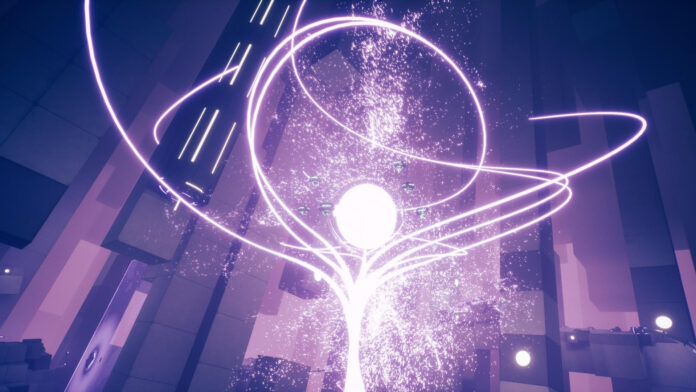After more than a decade of late nights, spreadsheets and stubborn persistence, solo developer Yannick Audéoud, working as Misty Whale, is finally on the verge of releasing his debut puzzle game Orbyss. What began as “just a hobby at the time” during his computer engineering studies gradually transformed into “a serious and commercial project.” Working entirely in his spare time, Audéoud never really planned to go solo. “it just happened, because that’s how I started the project, before knowing that it would take years.” Despite the challenges, he enjoyed working by himself: “There’s something very satisfying about seeing how all the pieces connect when you’re responsible for every part of the process.”
But that creative freedom came at a cost. “The obvious common downside is that you have to do everything yourself,” he admits, from coding to art to testing. Without a deadline or financial pressure, Orbyss became a marathon of self-motivation, one that at times took a mental toll. “Psychologically, it was really hard. Not finishing a project for many years was difficult to deal with,” says Audéoud. His inventive solution? Turning productivity into a game of its own: “I basically created a huge Excel table to recreate a side-scroller, where the player moves forward when I work on the game.”
Why did you become a solo developer?
“I started testing puzzle game concepts towards the end of my computer engineering studies. It was just a hobby at the time, I planned to finish a simple game within a year. But the project has become more ambitious over time, again and again, until it became a serious and commercial project. I think I didn’t actually decide to become a solo developer. It just happened, because that’s how I started the project, before knowing that it would take years! Also, I have been developing this game completely on my free time (this not my main job). So, in terms of organization, it was just simpler solo.”
What are the biggest advantages of working solo?
“The biggest advantage is of course creative freedom. I like being in control of every part of the project. As a solo dev, any decision is yours: visual, narrative, gameplay mechanics, etc. Each part of the game can be proudly shown as your own creation. It also allows for a very flexible workflow. I can iterate quickly, experiment, and shape the game in an organic way. There’s also something very satisfying about seeing how all the pieces connect when you’re responsible for every part of the process.”
And the biggest pitfalls?
“The obvious common downside is that you have to do everything yourself. Even the parts you’re not good at or don’t particularly enjoy. And of course, if you make a bad decision, nobody is here to help you realize it at first! You have to get the game tested regularly to receive feedback as soon as possible, and avoid working too long on something broken. But in my specific case, the biggest pitfall was probably having no deadline. That’s not only related to being solo, it’s also the problem of working in my free time, with no actual need to release the game to make money and survive. If the game was never released, I would be perfectly fine financially.”
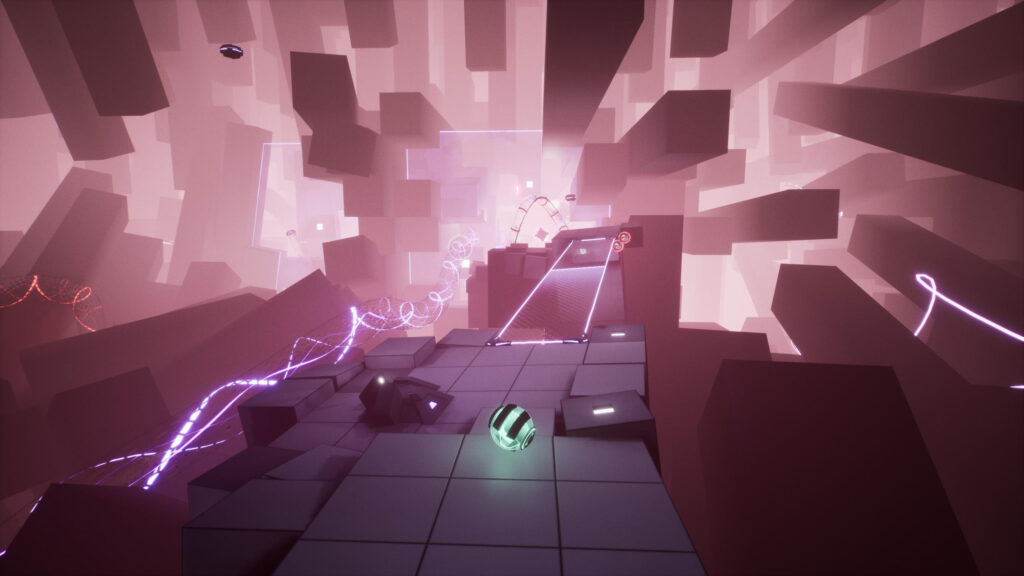
“Psychologically, it was really hard. Not finishing a project for many years was difficult to deal with. Especially as I had a lot of other project ideas (not only video games). I forbade myself from starting any other project until this game was released. The problem is: it took years, and I procrastinated a lot. Very frustrating! Now, the game is nearly released, and I can’t wait to discover what my life will look like without thinking about this project all the time.”
What’s your creative process?
“Most of my brainstorming happens alone. Usually sketching ideas, writing down mechanics, or prototyping directly in the engine to see how they feel. I rely a lot on intuition and iteration. But I also like to get external feedback at key moments, especially from a few trusted players and developer friends. Seeing someone else interact with your puzzles is often more insightful than hours of your own testing”.
“More specifically, to design one of the 40+ puzzle rooms in Orbyss, my process is: find an original twist (so the room will be unique and worth solving), that is to say a specific original action not seen before in the game that is a bit tricky and interesting for the player. Then I build the room around that. One very interesting aspect of Orbyss (and many puzzle games) is that each gameplay mechanic is very logic-based. So, once a twist has been decided, most of the time I can build the rest of the room in a kind of reverse engineering: what elements are necessary to lead to the twist?”
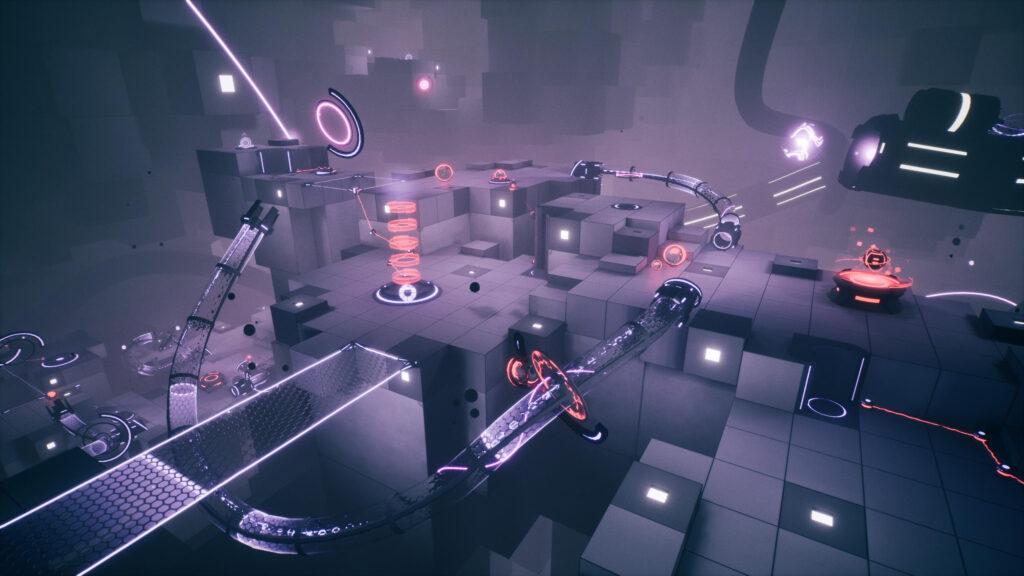
How do you stay motivated through (years of) development?
“It’s definitely a challenge, but seeing the game look more and more like what I had imagined is very satisfying! In my case, procrastination has been very hard during this time. Then in the final years, I found a solution that worked very well for me. You know platformer auto-scroller games where you have to advance enough to the right of the screen to avoid being crushed by a big wall which sweeps the entire level from left to right? I basically created a huge Excel table to recreate that, but the “wall” is the current date, and the ‘player’ moves forward when I work on the game.”
“I had hundreds of lines (one for each week), with 10 cells per week. Each cell is 1 hour of work. So I had to work at least 10 hours each week to make the “player” move one line and stay ahead of the current date. This very visual system worked incredibly well for me. I went from ‘it’s really hard to work a few hours a month because I have no deadline and nobody waiting for the game’ to ‘I work at least 10 hours a week for several years’.”
Will you ever work in a team or is it only solo for you?
“I’m open to working in a team in the future, especially if it’s with people who share a similar creative mindset. But for now, I enjoy the autonomy of solo development. It’s a great way to understand the full scope of making a game before collaborating on something larger.”
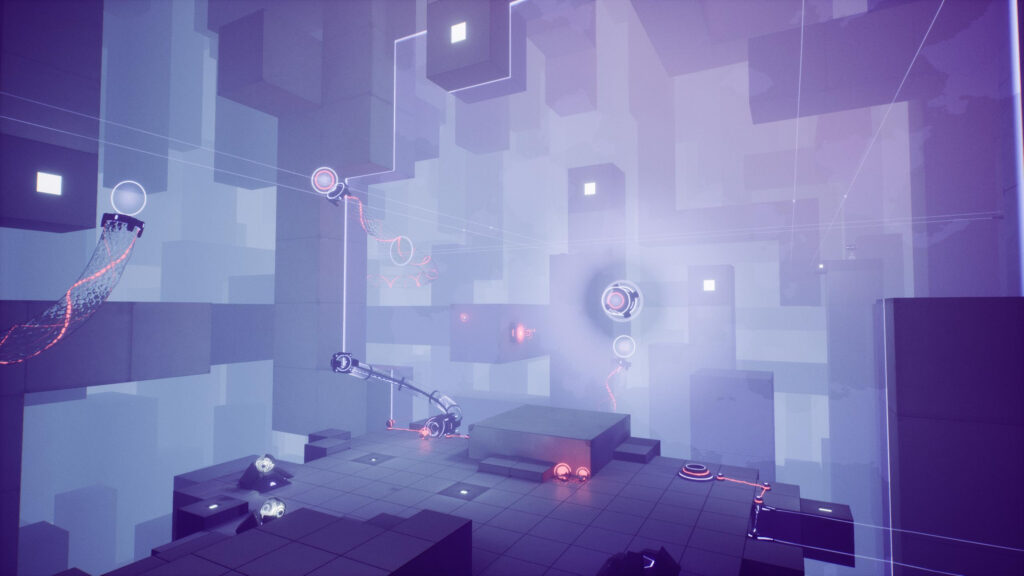
How did you get the idea for Orbyss?
“I started working on the project after playing a few puzzle games like Portal 2 and Q.U.B.E that inspired me a lot at the time. But there are also more unexpected inspirations. For example, do you know the game series Gobliins from the 90’s? I played it a lot during my childhood. In these games, you can control several little goblins to make them cooperate and perform actions in different places in the scene. I really loved this mechanic, and this gave me the idea for the core gameplay mechanic of Orbyss. The ability to switch between several Orbs, so you can be in several places at the same time, and solve puzzles in a self co-op fashion!”
What’s the biggest lesson that you’ve learned from this project?
“Orbyss is my first commercial project. I’ve been working on it in my free time, for an equivalent of approximately 2 to 3 full-time years, spread over more than 10 years. You don’t need to work twelve hours a day. You just need to keep moving forward, at the pace you decide, even in small steps. Also, learning to cut features and accept imperfections is key. A good game is about having a few interesting core concepts, balance and rhythm. An interesting game is not about quantity or perfectionism.”
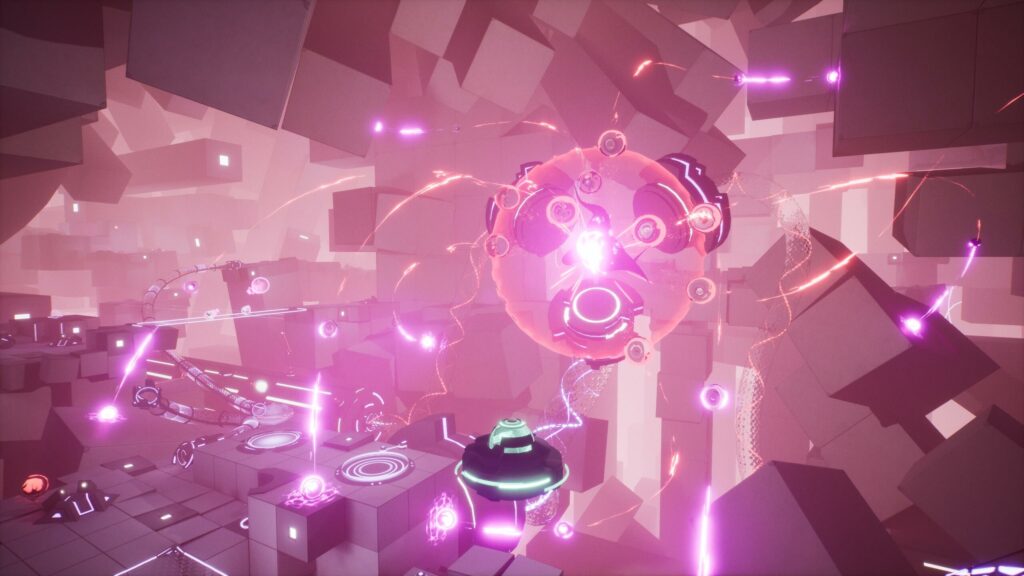
The toll on your mental health can be quite high for solo devs. How do you deal with that?
“When you’re working solo, the line between your personal life and your project can indeed blur very easily. As I mentioned,, working on such an ambitious project in my free time with no actual deadline at first was probably not the best idea. But it also helped me, because I had no actual pressure to succeed. That’s a two edged sword. And of course, another thing that helped me was looking forward to the moment when the game will finally be in the hands of players!”
Orbyss will be out on Steam on 27 October. Play the demo now.

